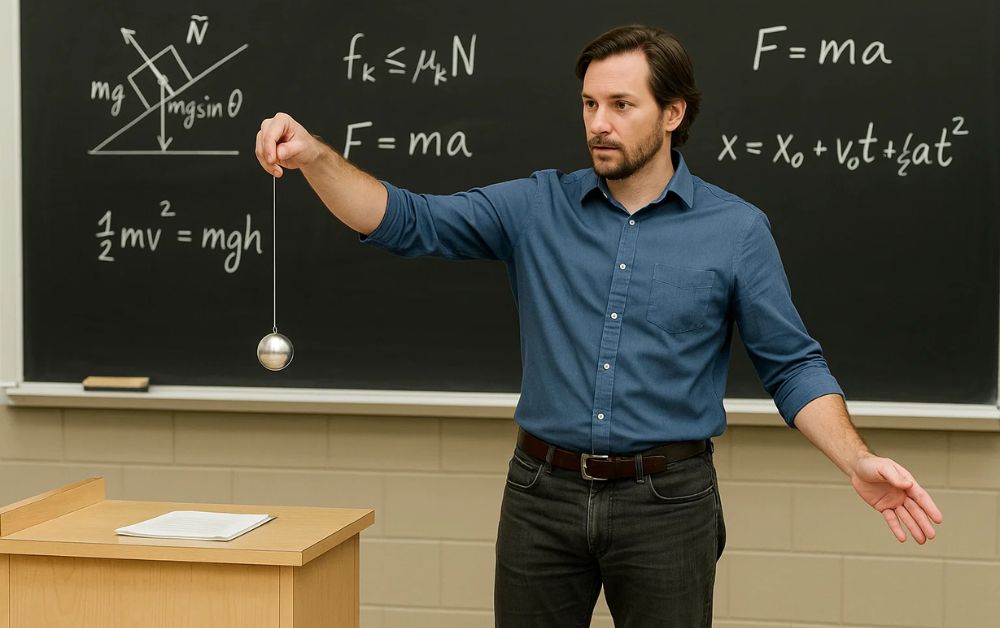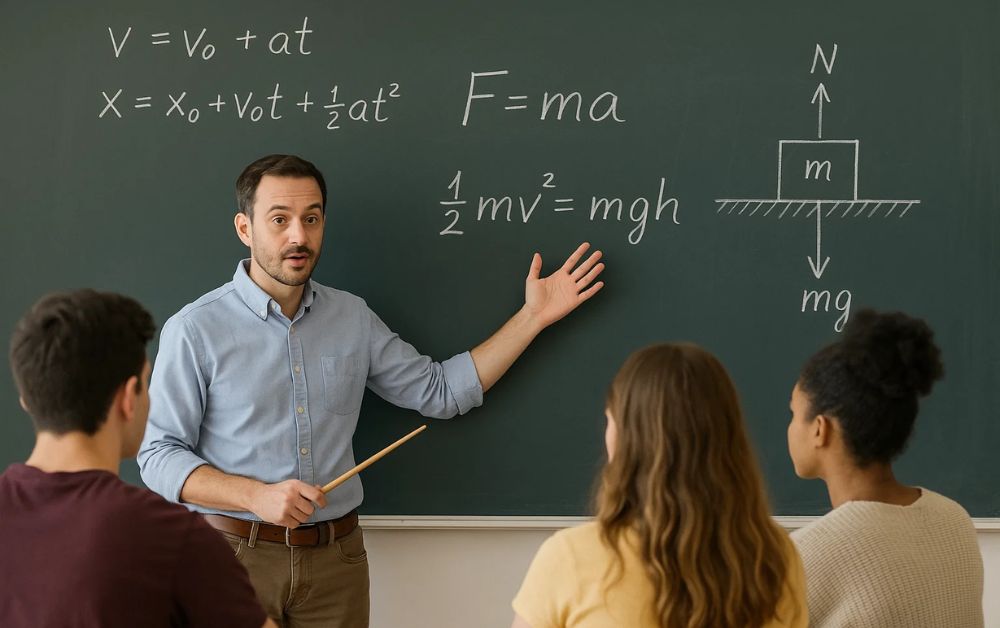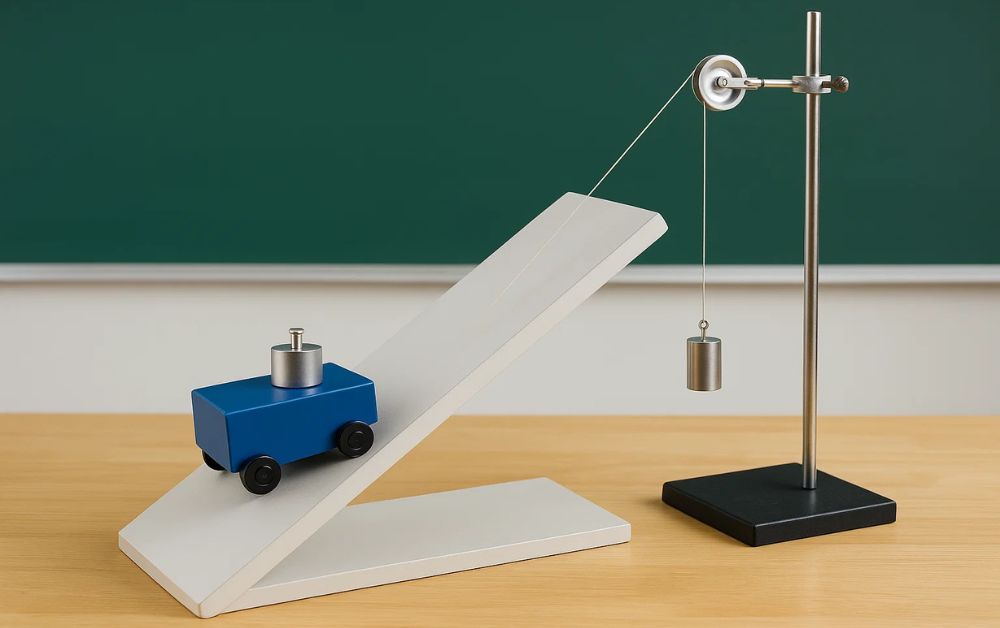
What to Expect in an Introductory Physics Course
Physics is often described as the most fundamental science because it explores the building blocks of matter, the forces of nature, and the rules that govern the universe. Understanding what to expect from an introductory physics course is key to academic success and long-term interest in science.
Introductory physics courses are designed not just to help students pass exams—but to truly grasp the physical world around them. In this blog, we’ll walk through what students can typically expect when they begin their physics journey.

1. Foundation of Core Concepts
Students are introduced to key topics such as:
- Motion and Mechanics: Includes speed, velocity, acceleration, forces, Newton’s laws, and circular motion.
- Energy and Work: Understanding potential and kinetic energy, conservation of energy, and the work-energy principle.
- Waves and Oscillations: Covers wave properties, sound, light, and basic optics.
- Electricity and Magnetism: Introduces electric circuits, current, voltage, resistance, and magnetic effects.
- Thermal Physics: Includes temperature, heat, and energy transfer.
These fundamental concepts lay the basis for more advanced topics that follow in the higher levels of each curriculum.
2. Curriculum-Specific Focus
Each educational board has its unique structure, and a good introductory physics course is tailored accordingly:
- IB Physics focuses on real-world applications and inquiry-based learning. The course encourages students to design experiments and reflect critically. Students will be introduced to internal assessments (IA) and will learn how to approach scientific investigations with precision.
- IGCSE Physics provides a practical and theoretical framework for students aged 14–16. Students learn through diagrams, calculations, and experiments that align with Cambridge or Edexcel syllabi.
- AS & A-Level Physics involves deeper theoretical understanding and problem-solving skills. At the introductory level, students start preparing for advanced topics such as quantum physics and field theory.
- AP Physics (typically AP Physics 1) emphasizes algebra-based physics with lab work and a strong problem-solving component. It prepares students for college-level physics with a structured approach.
Students in Dubai benefit greatly from course structures that reflect these distinctions, with personalized lesson plans to match.
3. Hands-On Learning and Practical Applications
An essential component of any physics course is experimentation. Students learn not only through theory but also by applying concepts in a lab setting. Introductory courses usually include:
- Lab experiments using everyday materials or simulations
- Data collection and analysis
- Error measurement and uncertainty
- Graphing and interpreting results
These practical skills are particularly emphasized in IB and AP courses, where internal assessments and lab reports contribute significantly to the final grade.
4. Problem-Solving and Mathematical Skills
Physics and mathematics go hand in hand. Even in introductory courses, students are expected to develop skills in:
- Unit conversion and dimensional analysis
- Rearranging equations
- Understanding proportionality and ratios
- Using graphs and interpreting slopes/intercepts
- Applying algebra and basic trigonometry
For AS/A-Level and AP students, mastering mathematical relationships early on is essential for understanding more complex equations and solving higher-order problems later.
5. Conceptual Thinking and Real-World Relevance
One of the most exciting parts of physics is that it connects theory with real-world phenomena. From understanding why satellites stay in orbit to how light travels through a fiber optic cable, introductory courses offer examples that make physics engaging and meaningful.
At Eryx, students are encouraged to ask questions, challenge assumptions, and develop a curiosity-driven approach to learning. This type of instruction fosters a deeper connection with the subject matter, making learning more than just memorization.
6. Assessment Preparation and Exam Techniques
Introductory physics courses also focus on preparing students for their specific exam boards. Students learn how to:
- Interpret multiple-choice and structured questions
- Use formulas efficiently
- Structure answers to match marking schemes
- Manage time during exams
- Review using past papers and examiner feedback
Each curriculum has different assessment styles, and tutoring programs that specialize will guide students through these nuances effectively.
7. Building Confidence and Critical Thinking
Introductory physics courses help students develop more than just subject knowledge—they also nurture logical reasoning, analytical thinking, and self-discipline. These are skills that carry over into all other academic and professional pursuits.
Regular feedback, mock tests, and interactive teaching ensure students not only learn but also retain & apply their knowledge with confidence.

In Conclusion
Starting an introductory physics course is a major step in a student’s academic journey. Understanding what to expect can greatly enhance their success and motivation. With expert guidance, a tailored approach, and hands-on learning, students in Dubai can thrive in physics from day one.
Eryx Training Center offers comprehensive and personalized physics lessons across all major curricula—empowering students to build strong foundations and achieve academic excellence in the sciences.
